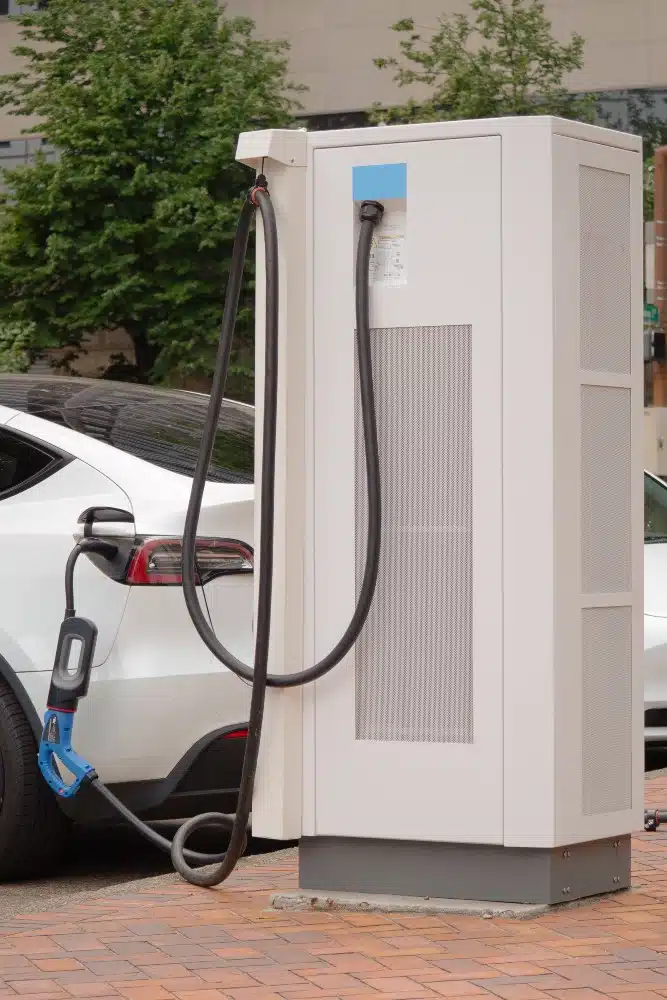Universal Chargers
Are EV Charging Stations Universal?
EV charging stations are not universally compatible. Level 1 and 2 chargers often work with most EVs, though adapters may be needed. Level 3 chargers vary more due to different fast-charging standards like CHAdeMO, CCS, and Tesla Superchargers.

As the electric vehicle (EV) market continues to expand, the demand for charging options is growing exponentially. A critical question for EV owners and potential buyers is: Are EV charging stations universal? This article delves into the various aspects of EV charging stations, their compatibility, and what this means for EV users.
Understanding EV Charging Standards
Charging standards are the cornerstone of understanding EV charging station compatibility. They define the types of connectors and protocols used, which vary from one region and manufacturer to another. Let’s explore the different charging standards and how they impact the use of EV charging stations.
Overview of Charging Standards
There are several charging standards in the EV world. The most common include CHAdeMO, predominantly used by Japanese manufacturers; CCS (Combined Charging System), favored in Europe and North America; and Tesla’s proprietary system. These standards dictate the type of charging port an EV has and its compatibility with different charging stations.
Compatibility Across Different EVs
While many newer EV models are designed to be compatible with multiple charging standards, some older models may have limitations. This compatibility is crucial for EV owners to understand to ensure they can access the necessary charging infrastructure.

Types of EV Chargers
The world of EV charging is diverse, with various types of chargers available, each with its unique features and compatibility. From basic Level 1 chargers to rapid DC Fast Chargers, this section delves into the different types of EV chargers and their suitability for various EV models.
Level 1 Chargers
These chargers are the most basic, offering slow charging typically through a 120-volt AC plug. They are universally compatible with all EVs and are commonly used for overnight home charging.
Level 2 Chargers
Level 2 chargers provide faster charging through a 240-volt AC plug. They are more common in public and residential settings. Most EVs can use Level 2 chargers, though an adapter may be required for some models.
Level 3 Chargers (DC Fast Chargers)
DC Fast Chargers, offering the quickest charging speeds, vary in their compatibility. They are designed for specific charging standards like CHAdeMO or CCS, making it essential for EV owners to know their vehicle’s specifications.
Universal EV Chargers
The concept of universal EV chargers is central to the discussion of EV charging infrastructure. This section examines the universality of different levels of EV chargers, addressing a common question among EV users and potential buyers. We’ll explore the compatibility and universal nature of Level 1, Level 2, and Level 3 chargers, shedding light on their adaptability across various EV models.
Are Level 1 Chargers Universal?
Level 1 chargers are often considered the most universal type of EV charger. They typically use a standard household outlet (120V in the United States), making them compatible with virtually all EVs. However, their lower charging speed is a trade-off for this universality, making them ideal for overnight charging or for use in settings where rapid charging is not necessary.
Are Level 2 Chargers Universal?
Level 2 chargers, operating on a 240V system, are more complex than Level 1 chargers. They are commonly found in public charging stations and are compatible with most EVs, though some may require specific adapters. The universality of Level 2 chargers is often subject to the availability of these adapters and the specific charging requirements of different EV models.
Are Level 3 Chargers Universal?
Level 3 chargers, also known as DC Fast Chargers, offer the fastest charging speeds but are the least universal due to varying standards like CHAdeMO, CCS, and Tesla Superchargers. Their compatibility largely depends on the EV’s make and model, with some vehicles requiring specific adapters to use these chargers. Despite their growing presence, the universality of Level 3 chargers is still limited by these compatibility issues.
Adapters and Retrofitting
Navigating the compatibility of EVs with different charging stations sometimes requires the use of adapters or even retrofitting older vehicles. Let’s discuss how adapters and retrofitting options can enhance the flexibility of EV charging, ensuring broader accessibility across different charging stations.
Using Adapters
Adapters are not just a stopgap solution; they represent the flexibility and adaptability of the EV infrastructure. They are particularly useful for EV drivers who travel long distances and may encounter a variety of charging stations. For instance, a Tesla owner might carry a CHAdeMO adapter to access fast-charging networks outside of the Tesla ecosystem.
Retrofitting Options
Retrofitting is more complex and expensive than using an adapter but can be a worthwhile investment for extending the life and functionality of an older EV. This process can involve upgrading the onboard charger, the charging port, or even the software that manages charging.
Limitations and Considerations
While adapters and retrofitting offer solutions, they also come with limitations. Not all EVs can be retrofitted, and the use of adapters may sometimes be restricted by the vehicle’s software or the charging station’s policies. It’s important for EV owners to be aware of these limitations and plan their charging strategies accordingly.
Future Trends and Standardization Efforts
The landscape of EV charging is continuously evolving, with efforts underway to streamline and standardize charging processes. Let’s look ahead to the future of EV charging, examining trends and standardization efforts that could lead to more universal charging solutions.
Towards a Universal Charging Connector
The push for a universal charging connector is gaining momentum, with industry players and governments recognizing the need for a simplified charging infrastructure. This would reduce the need for multiple adapters and make EVs more appealing to a broader audience.
Wireless Charging Technology
Wireless, or inductive, charging is emerging as a potential game-changer. It involves parking the EV over a charging pad, making the process as simple as parking. While still in the early stages, this technology promises to revolutionize how we think about EV charging.
Smart Charging and Communication Protocols
Smart charging systems and unified communication protocols are critical for integrating EVs into smart grids. These technologies enable more efficient use of energy resources, allow for dynamic charging rates based on grid demand, and could even allow EVs to feed energy back into the grid.
Looking Ahead
The future of EV charging is likely to be a blend of improved physical infrastructure and advanced software systems. As the industry moves towards these innovations, EV owners can look forward to a more streamlined, efficient, and accessible charging experience.
Final Thoughts
Currently, EV charging station compatibility varies depending on the vehicle and charger type. It’s essential for EV owners to be aware of their vehicle’s charging requirements and the types of chargers available. As the market evolves, we may see more universal solutions, but for now, adaptability and knowledge are key.